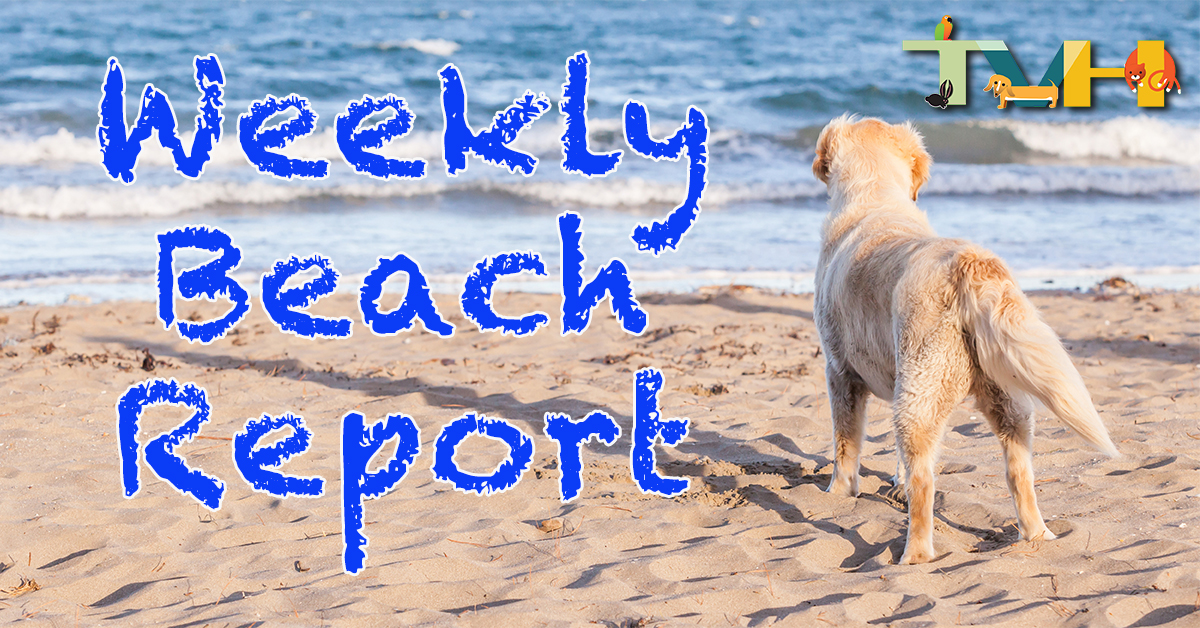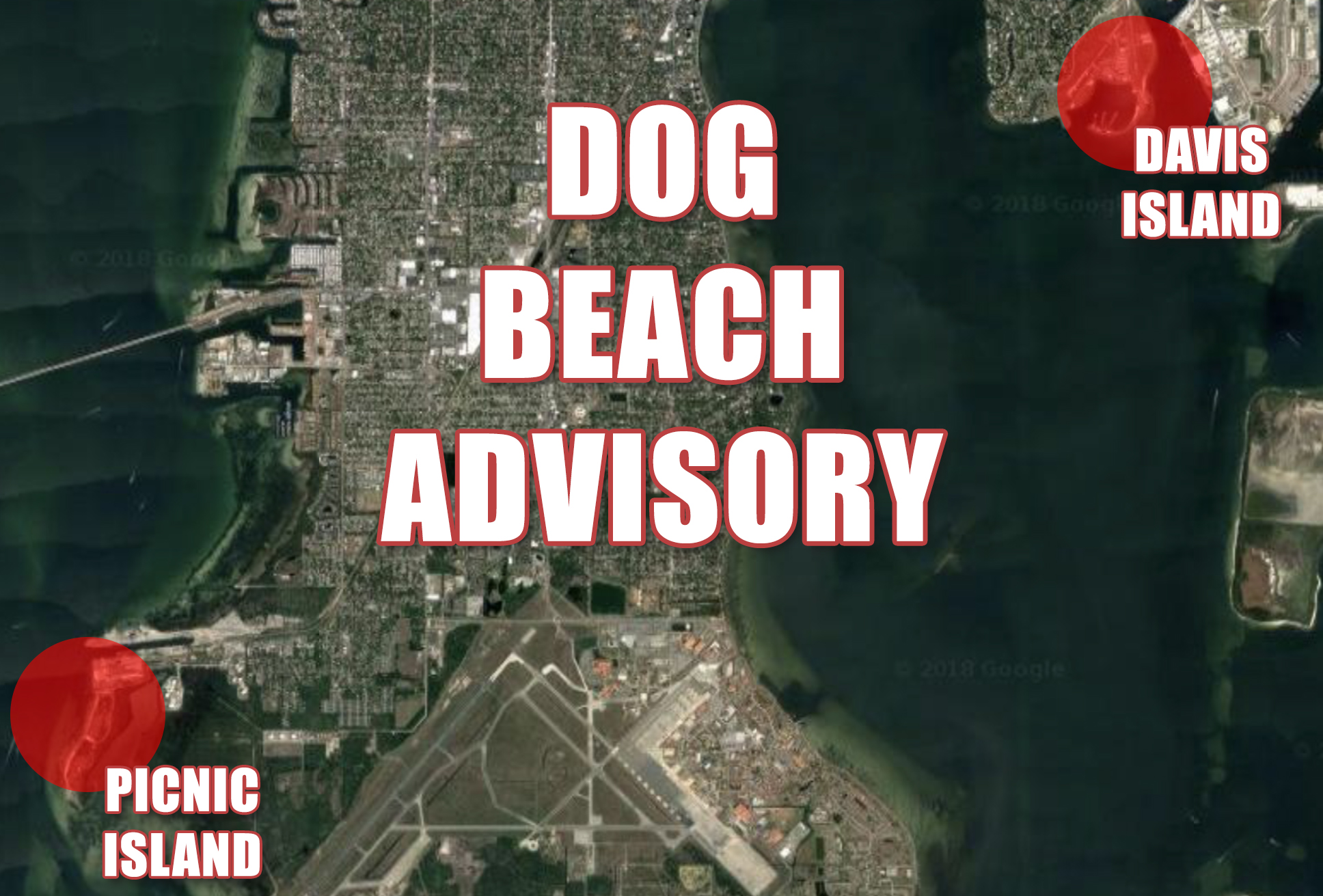2 Local Dog Beaches under advisory
Hi everyone! Our social media post in late July regarding the beach advisories was so popular, we decided that we should update our blog every week to let you know if the beaches are safe for you and your pets. We will include information on not only fecal coliform & enterococci, but will also monitor the FWC website for the latest red tide reports. Click Here For Our Latest Update
 Recently, two popular dog beaches in our area were flagged for having high levels of bacteria which could pose health problems for both humans and pets. We posted the alert on Facebook, and it is one of the most widely shared posts we’ve ever put on our news feed. It’s obvious that our friends love going to the beach with their pets- which is great! The beach gives your pet a great opportunity to exercise and socialize with other pets. But why were these two beaches put under this warning?
Recently, two popular dog beaches in our area were flagged for having high levels of bacteria which could pose health problems for both humans and pets. We posted the alert on Facebook, and it is one of the most widely shared posts we’ve ever put on our news feed. It’s obvious that our friends love going to the beach with their pets- which is great! The beach gives your pet a great opportunity to exercise and socialize with other pets. But why were these two beaches put under this warning?
There are 30 coastal counties in Florida that participate in the Beach Water Quality program which began in 1998- with only 5 counties. They test for both fecal coliform and enterococci bacteria. Both of these bacteria are related to animal or human waste products. This is not to say that the dog beaches are contaminated specifically with dog poop. In this instance, the frequent rains for the past 12 days (we’ve had measurable rains for the past 12 days) are likely a big contributor, washing a wide variety of things into our waterways. Some of that is animal waste- from a variety of sources both wild and domestic.
When the water is tested, they’re looking to determine how much harmful bacteria is in the water. A level of less than 35 enterococci per 100 mL of water (a little more than 3 ounces) is considered good. 36-70 per 100 mL is considered moderate, and more than 71 is poor- and triggers the official advisory which was announced for Davis Island and Picnic Island.
The enterococci bacteria is not to be messed with. It can cause a variety of diseases and symptoms if you come into contact with it- whether it be through an open sore or wound, or if it is ingested in some way. Think of it like the flu. The bacteria does not need to live in water to survive. If you touch the water, and the bacteria gets on your hands- you can spread the bacteria to anything you touch. Those following behind you can pick up the bacteria by touching what you touch. This goes for your pets, too. Your pets go into the suspect water, and then could carry the bacteria with them into your car, your house, etc. So if your pet has been to these two beaches in the past few days, I suggest cleaning anything that they’ve come in contact with- and give your pet a good bath.
 Enterococci can cause lots of problems, but the majority of the issues are related to elimination. Urinary tract infections and diarrhea are the most common. So if your pet has recently been to the beach (especially one under the advisory) and notice a change in urination, drinking, eating or bowel movements- we suggest contacting your vet. Some of these symptoms can also be due to the ingestion of too much saltwater- I wrote a blog on that topic which you can find here.
Enterococci can cause lots of problems, but the majority of the issues are related to elimination. Urinary tract infections and diarrhea are the most common. So if your pet has recently been to the beach (especially one under the advisory) and notice a change in urination, drinking, eating or bowel movements- we suggest contacting your vet. Some of these symptoms can also be due to the ingestion of too much saltwater- I wrote a blog on that topic which you can find here.
If you enjoy taking your pet to the beach, here’s a great website that will tell you if there are advisories for that particular beach. Remember that this list is for all beaches, and that dogs are not welcome at all public beaches. The website does not distinguish between public beaches and those that welcome dogs.
http://www.floridahealth.gov/environmental-health/beach-water-quality/index.html
